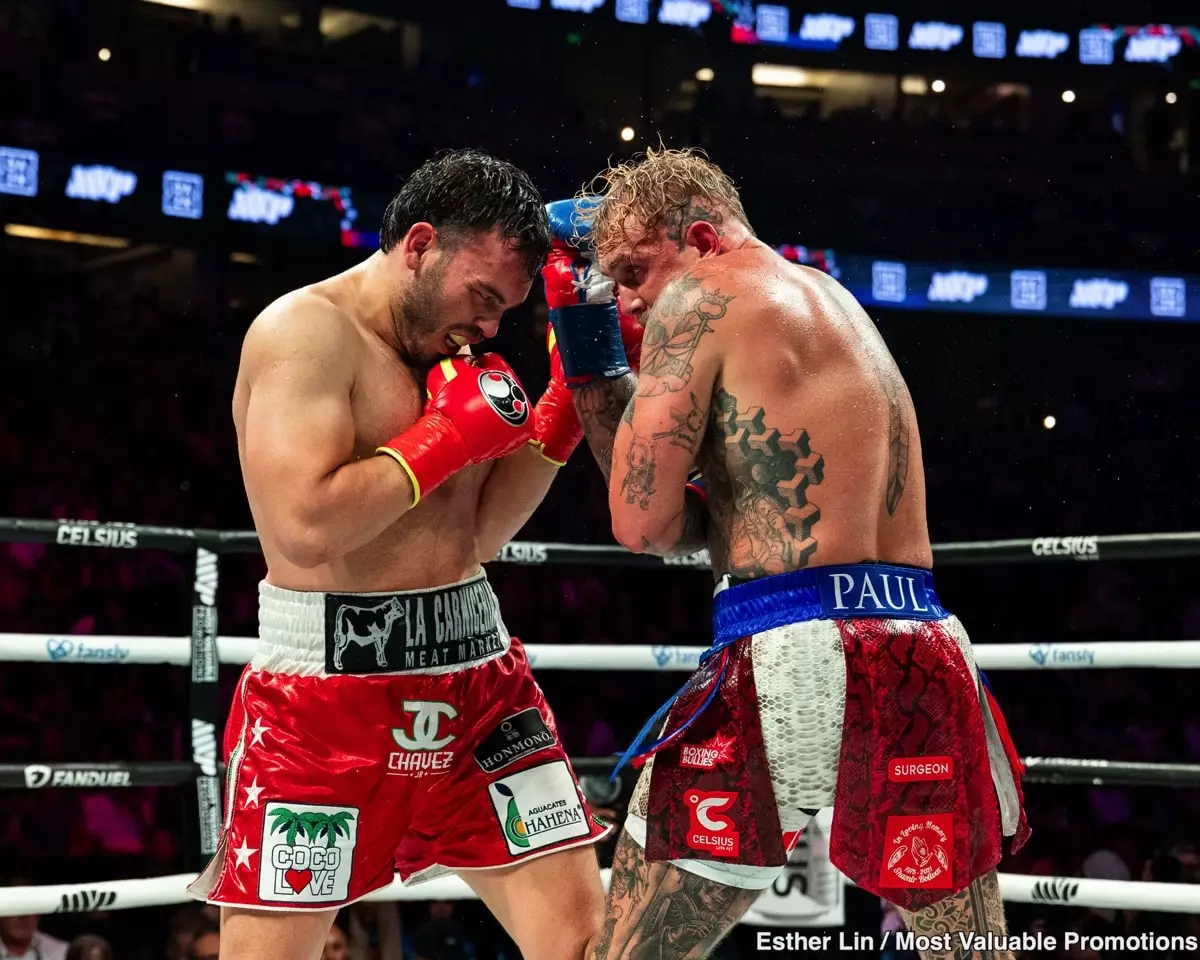The modern boxing landscape is witnessing a troubling phenomenon—an unsettling clash between authentic sporting competition and entertainment-driven spectacles masquerading as legitimate fights. At the heart of this controversy lies Jake Paul, the YouTube personality turned boxer whose career has ignited fierce debate among purists and casual fans alike. Vergil Ortiz, a respected welterweight knockout artist, did not mince words in critiquing Paul’s impact on the sport, offering a brutally honest perspective that deserves careful scrutiny.
Where traditional boxing thrives on grit, discipline, and years of honing skill under brutal physical and mental conditions, Paul’s brand of boxing revolves around marketing hype, social media savvy, and carefully curated opponents. Ortiz’s critique pulls no punches: Paul’s fights are largely “circus” events—illusions sold to an audience eager for excitement but ultimately starved of technical boxing prowess. This stark contrast exposes a fault line widening between genuine fighting and packaged showmanship.
The Anatomy of a Manufactured Boxing Drama
Jake Paul’s ongoing success rests on a simple yet maddening formula. His team lines up opponents who once danced in the realms of combat sports but are now well past their prime, often relying on nostalgia to generate buzz. These fighters, like Julio Cesar Chavez Jr., bring a residual spark of credibility but often fail to deliver genuine resistance, fueling suspicions of staged outcomes or at least underwhelming competitive spirit.
Add to this a relentless marketing machine fueled by viral diss tracks, theatrical trash talk, and fervent social media engagement. The result is a well-oiled spectacle that captivates a demographic more attuned to digital content consumption than boxing technique. Fans on Twitter and YouTube cheer fervently, convinced each new match promises a breakthrough moment for Paul’s legitimacy—even as the underlying pattern remains disappointingly predictable. It is a cyclical, self-deluding saga where spectacle triumphs over substance.
Promoters and Broadcasters: Profiteering at the Expense of Integrity
The boxing industry, rather than resisting this commercialized distortion, seems complicit. Promoters and broadcasters, dazzled by Paul’s massive social media following, prioritize immediate profit over the sport’s integrity. Their embrace of Paul as a marquee attraction signals a concerning shift in priorities: viral popularity trumps hard-earned merit.
Real contenders, those grinding in gyms day in and day out, fighting in blood-and-guts battles with uncertain outcomes, often languish in the shadows. Their fights fail to garner the same attention or payouts as Paul’s manufactured dramas. This disenfranchisement of dedicated professionals underscores a broader issue within boxing—the struggle to maintain authentic competition in an era dominated by viral content and influencer culture.
The Fanbase Paradox: Enabling the Decline Through Blind Devotion
Perhaps the most troubling aspect of this trend is the role of Paul’s fanbase. Many of these supporters are digital natives with little experience in combat sports, drawn instead to the entertainment and community aspects of the spectacle. However, Ortiz’s criticism shines a light on a paradox: these fans accuse critics of “hating” while willingly purchasing tickets to hollow contests.
This cyclical endorsement of mediocrity, buoyed by social media echo chambers, perpetuates the charade. Fans hope against hope for a “real fight” in a boxing ring increasingly filled with performances rather than genuine contests. From wrist-twitching Twitter debates to enthusiastic viral trends, the spectacle overshadows the sport, leaving true boxing aficionados disillusioned.
Questions of Authenticity: The Chavez Jr. Controversy
Further complicating this issue are fights like Jake Paul vs. Julio Cesar Chavez Jr., which many observers viewed with skepticism. Chavez Jr.’s lackluster performance invited questions about whether the fight was rigged or simply an example of a faded boxer “mailing it in.” Such doubts erode trust in not only Paul’s fights but the legitimacy of events labeled as professional boxing.
This skepticism is not unfounded. Chavez Jr. is known for faltering under pressure, and yet to many, this almost scripted underperformance felt like a betrayal of what boxing represents—a contest where both parties fight honestly for victory.
Boxing’s Identity Crisis in the Digital Age
Jake Paul’s success, and the controversy around it, highlights an identity crisis in boxing—a sport caught between its storied past and a digital future eager for clicks and viral moments. Ortiz’s candid condemnation punctuates a growing frustration among purists: boxing risks being reduced to reality TV performances, where genuine fighters struggle for relevance amid influencer-driven spectacles.
This tension demands a reckoning within the boxing community. Will promoters and fans recommit to the endurance, technique, and heart that define the sport? Or will the siren call of easy profits from influencer fights continue to erode boxing’s authenticity?
The answer lies not just in the hands of fighters like Paul but in the collective choices of fans, media, and the industry that channels the sport’s future.

